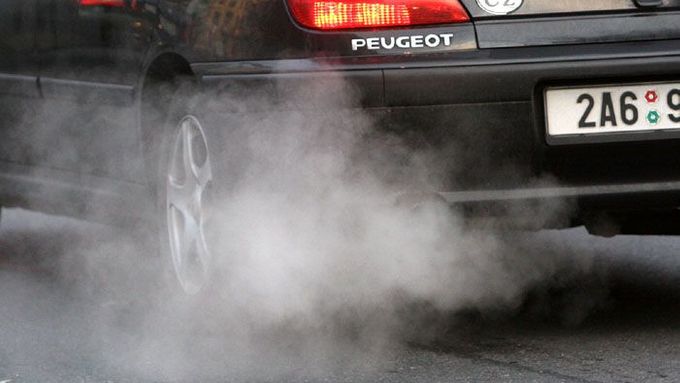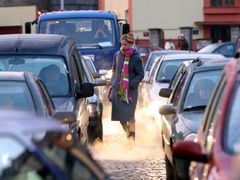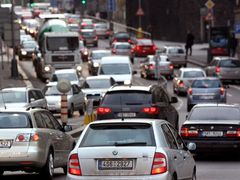Prague - City officials could soon have a new tool how to ban cars from entering city centres in smoggy conditions or limit the production of power plants and other factories.
The Environment ministry is preparing an amendment to its "smog regulation" that could let regions or towns limit the main sources of pollution whenever they record an overly high concentration of fine dust particles. Up until now, officials were only able to limit traffic or factory production in cases of high concentration of sulphur or nitrogen.
But fine dust particles in the last few years have become the main type of air pollutant. These microscopic particles, which can be breathed in deep into the lungs, often contain carcinogens.
The ministry is now sending out its proposal to other offices for comments. "We expect that it could come into effect before the next heating season," Michal Bernard, a lawyer who co-authored the proposal, told Aktuálně.cz.
When will the cars be stopped?
The proposal of the regulation wants to enable towns and regions to be able to regulate pollution whenever there are higher dust levels all year long. Smoggy conditions are most common in winter months, when the smog has less of a chance to disperse.
If the 24-hour concentration surpasses 100 micrograms per 1 cubic metre, the Czech Hydrometeorological Institute issues a warning signal. If the concentration level surpasses 150 micrograms, officials will be able to bar cars from city centres or force factories to decrease production.
"High concentration of dust particles in the short term must be reduced by regulating the sources responsible for the dust," says Jan Kužel, director of the air protection department.
But suitable meteorological conditions are necessary, for instance, several days of inversion and growing dust level concentration. At the same time, media will inform the public about the adopted measures, including traffic reduction in some areas.
Car ban? Three or four times a year
Jan Macoun, deputy director of the hydrometeorological institute said that last year some 25 stations reported fine dust particle concentration surpassing 150 micrograms. This was mostly in northern Moravia, in Prague and in other big cities.
"The Ostrava region in this respect tops the list" Macoun told Aktuálně.cz. He did not want to estimate, however, how frequently all the required conditions would be met so that officials could put in more drastic measures, such as limiting traffic and other sources of pollution.
Michal Bernard of the Environment Ministry estimates that this could be several times a year. "Maybe three or four times a year. It depends on a series of climate conditions that cannot be predicted," says. Bernard.
Air pollution is the main environmental problem in the Czech Republic. More and more, car traffic is contributing to air pollution - now by about one third, and, in the case of the most dangerous pollutants, fine dust particles, it is by nearly one half.
Prague couldn't cope with traffic limitations
The last time that traffic and other major sources of pollution were reduced because of high concentrations of pollutants was in the 1990s.
Prague, for instance, closed its centre to cars in November 1996, but City Hall wasn't able to handle the situation. Drivers didn't get the information on time, so that there were long queues of cars piling up by closed off roads, and buses, which were allowed to enter the city centre, had big delays as a result. The traffic jams ended up increasing the concentration of pollutants even on the city outskirts.
City officials say they have learned a lesson from this experience and that they would be able to handle the situation much better the next time there is a need to reduce traffic in the city.
Adapted and republished by Prague Daily Monitor.












